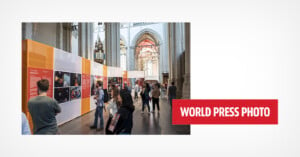
World Press Photo Partners with Fujifilm to Expand Annual Competition
The World Press Photo Foundation, which operates the annual World Press Photo Contest, has entered into a "strategic partnership" with Fujifilm.

The World Press Photo Foundation, which operates the annual World Press Photo Contest, has entered into a "strategic partnership" with Fujifilm.

The Ukrainian Association of Professional Photographers (UAPP) is officially oppsing the inclusion of Russian photographer, Mary Gelman, called "Maria" in some publications, as part of the jury for the World Press Photo 2024 competition.

The World Press Photo contest has bowed to pressure from the photographer community. After initially announcing that AI-generated images would be allowed in the "Open Format" category of the competition, it has now walked back on that decision.
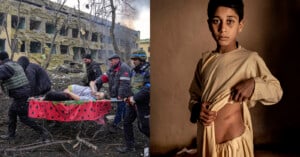
The World Press Photo Contest has announced its global winners for 2023 which highlight the importance of photojournalism and documentary photography.
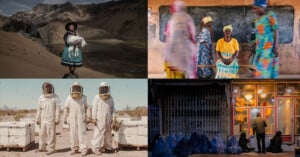
The annual World Press Photo Contest has announced the regional winners of its 2023 competition.
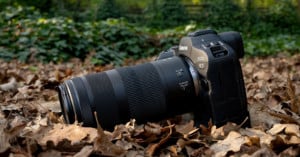
The World Press Photo organization recently shared the winners of its 2022 competition. As it does every year, the Spanish website Photolari has followed with a breakdown of the brands, systems, and cameras that were used to capture the winning photos.
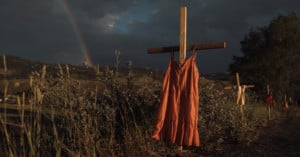
The World Press Photo Foundation has announced the 2022 global contest winners that it has recognized as the best photojournalism and documentary photography taken in the last year.
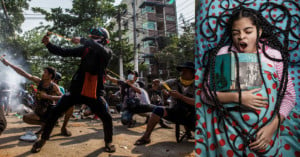
The World Press Photo organization has announced the winners of its 2022 competition. Now in its 65th year, the competition recently switched to a new region-based model that awards winners in four categories across six global regions.
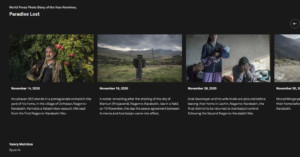
The mountainous region of Nagorno-Karabakh, which sits between Armenia and Azerbaijan, has been rife with tension and animosity for over three decades.
The conflict was reignited in September and quickly became an outright war, with drone strikes and missile attacks. Thousands died, and more have been displaced. In November, a peace deal was brokered, Azerbaijan declared victory, and captured most of the contested region, forcing Armenians to flee.

The World Press Photo organization just published the winners of its 2021 competition and in its annual tradition, Spanish website Photolari has followed with its breakdown of brands, systems, and cameras that were used. So, has much changed since last year?
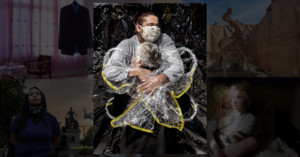
The World Press Photo Foundation has announced the winners of its prestigious annual photojournalism competition, naming the World Press Photo of the Year, World Press Story of the Year, and winners of eight categories.
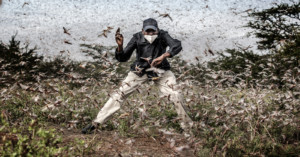
The World Press Photo Foundation has announced the nominees for its 2021 contest featuring 45 photographers from 28 countries. Though all the work is incredibly impressive, six of the moving photos are in the running for World Press Photo of the Year.

On June 11th, the World Press Photo Foundation made an important announcement. Lars Boering—Managing Director of the foundation for the past 5 years—is leaving the organization as they prepare to enter "a new phase for connecting the world to the stories that matter."
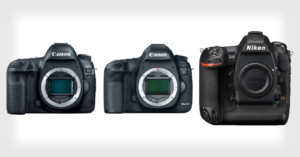
World Press Photo just revealed the winners of its 2020 Photo Contest, and as they do every year, Spanish photography site Photolari has shared a detailed breakdown of the brands, systems, cameras, and sensors that won the day. Has the mirrorless revolution finally reached photojournalism?
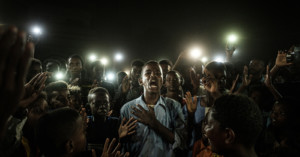
The World Press Photo Foundation has announced the winners of its prestigious annual photojournalism competition, crowning a World Press Photo of the Year, a World Press Photo Story of the Year, and honoring winners and runners up in eight separate categories.
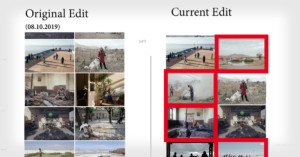
After World Press Photo announced its finalists this year, Iranian photographer Solmaz Daryani came forward and accused German photographer Maximilian Mann of plagiarizing photos from her personal project for his environmental photos of Lake Urmia in Iran. Now Mann's collective is firing back, accusing Daryani of fabricating the controversy with previously unpublished photos.
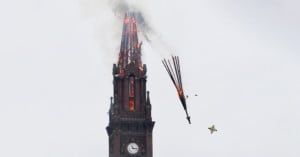
This past weekend, photojournalist Barbara Haddock Taylor captured an extraordinary image of a flaming church steeple in Baltimore crashing to the ground. We caught up with Taylor to find out more about how she captured such an arresting moment in time.
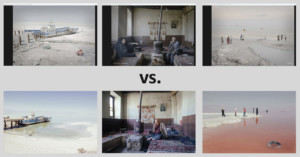
The prestigious World Press Photo competition has been plagued by several controversies in recent years, and it looks like this year's contest is no different. A nominated photographer is being accused of plagiarism by an Iranian photographer who believes her personal project was "hijacked."
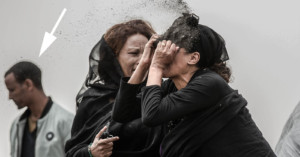
Late Winter brings about a new crop of contest winners and nary a season goes by without a whiff of controversy in some form or fashion. Yesterday World Press Photo announced its 2020 Photo Contest and Digital Storytelling Contest nominees.
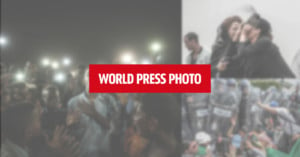
The World Press Photo Foundation has revealed the finalists of one of the most coveted awards in photojournalism. Picking from 73,996 photos submitted by over 4,200 photographers from 125 countries, the judges have identified six images that will go toe to toe for the title of World Press Photo of the Year, 2020.
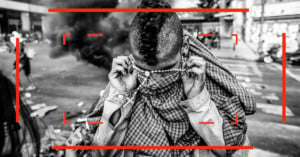
It’s Martin Kaninsky from the All About Street Photography YouTube channel, and today I would like to talk about a series of photographs that placed 3rd for Long-Term Projects, Stories in the 2019 World Press Photo competition. It's State of Decay by Alejandro Cegarra.
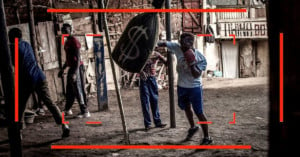
It’s Martin from the All About Street Photography YouTube channel, and today I would like to talk about a very special photo that ended up winning the 1st prize in the Sports, Singles category of the 2019 World Press Photo contest.

World Press Photo just announced the winning photos for the 2019 edition of it's world's most prestigious photojournalism contest. Camera metadata shared alongside the top photos is again providing us with an inside look at what gear the world's top photojournalists are using at the moment.
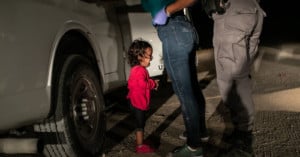
Getty Images photographer John Moore has won the prestigious World Press Photo Contest for 2019 for his photo titled "Crying Girl on the Border." The photo was selected from among 78,801 submitted by 4,738 photographers.
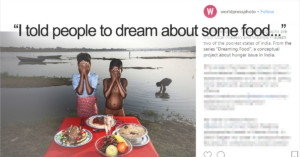
World Press Photo is at the receiving end of sharp criticism today for a series of photos on its Instagram account showing poverty-stricken Indians standing in front of tables laden with feasts.
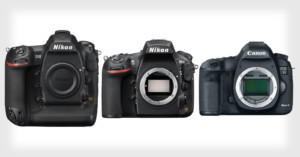
World Press Photo announced the 2018 winners of its prestigious photojournalism contest last week, and most of the winning photos (97 of 129) were accompanied by details of the cameras they were shot with. This year, Nikon took the lead from Canon.
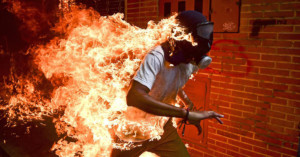
Venezuelan photographer Ronald Schemidt has just been awarded the prestigious World Press Photo of the Year prize in 2018 for his striking photo of a Venezuelan man on fire during violent clashes with riot police.
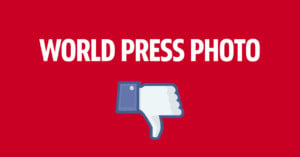
The year-long world tour of photojournalist Hossein Fatemi’s controversial Iranian photos is coming to an end. In a year in which fake news and the abuse of power has never been in sharper focus, it’s worth examining some of the incomprehensible decisions that led to Fatemi’s work being given such a massive platform to deceive.
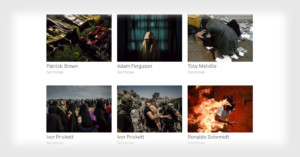
I write a version of this story every year around this time: photo contest result time. And every year, it’s addressing the same grousing and whining and complaints about everything from non-diversified juries to images being too newsy or not newsy enough.
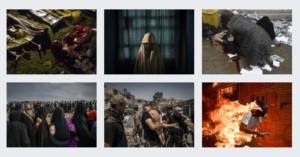
In a break from the past, World Press Photo (WPP) released the short list of finalists in advance of naming the winners to their annual contest – arguably the most prestigious in all of photojournalism. The photos are remarkable for their composition, exposure, and intimacy. But judging by the subject matter one might surmise that we’re living in a hellish dystopia, or that the jury believes pain and suffering is the most valid form of photojournalism.